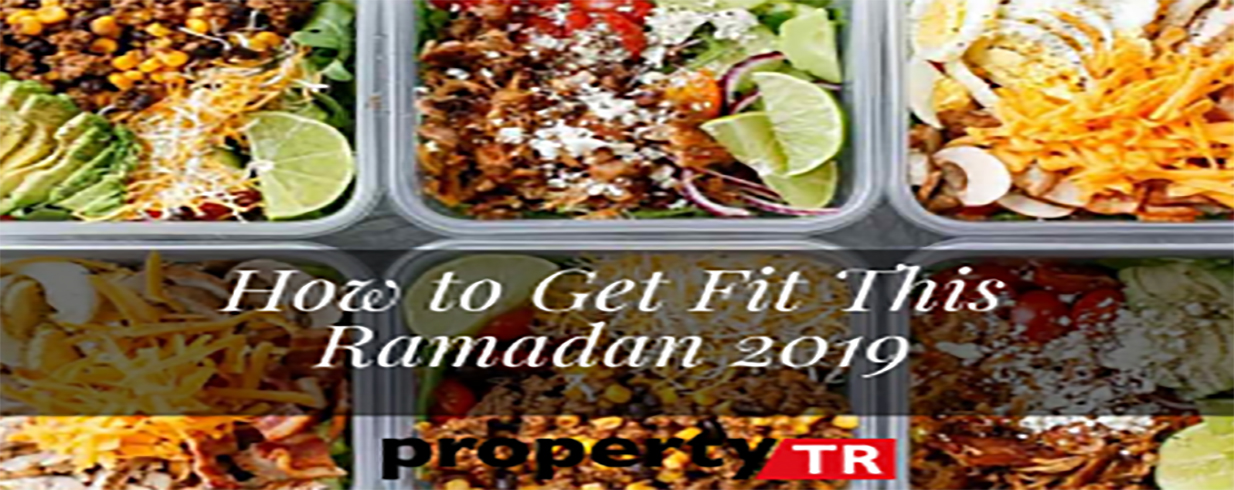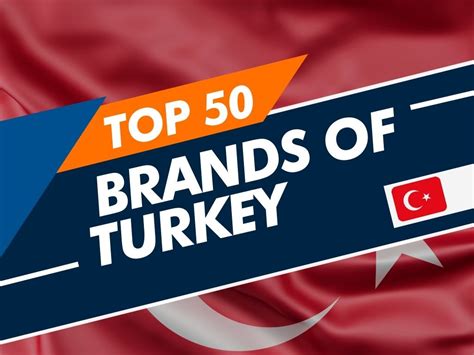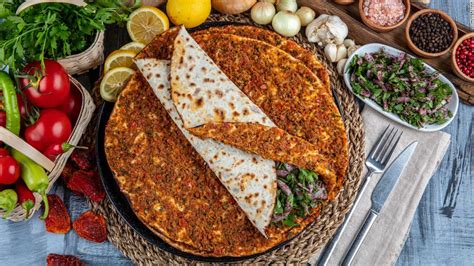Ramadan is a time for self-reflection, self-control, prayer and char- ity. In addition to your mind and soul being cleansed, your body goes through some remarkable changes, as well. By the end of Ramadan, your body would have undergone a full de- toxification process. Your physical and mental energy will be fully charged and ready for the next 11 months!
In this short Ramadan fitness guide, we will show you how to take full advantage of this month and finish it feeling leaner, cleaner and even stronger than before!
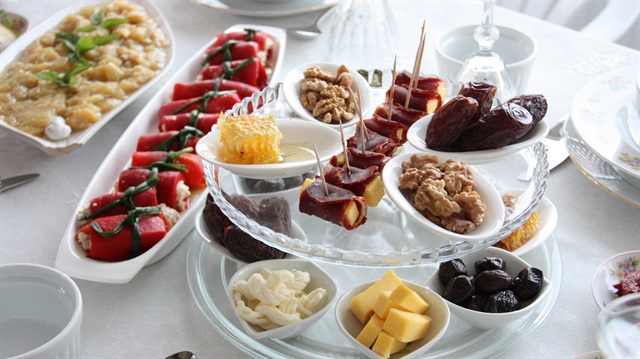
Things to avoid (this is the painful bit!)
In order to realise the full benefit of Ramadan, you will need to make sure you are eating and drinking the proper things, but more importantly, avoiding the bad ones!
These are the main foods and drinks to avoid during Ramadan:
- High salt foods – consuming a large amount of salt will make you thirsty. Most people fasting will struggle more with thirst than hunger, so in order to keep your body hydrated, cut down the salt!
- Fried foods – so no samosas!
- High fat foods – as delicious as it sounds, stay away from pizza!
- Sugary drinks – avoid fizzy drinks, but fresh, natural fruit juice is fine.
- Processed foods – your body needs fresh ingredients, which are lower in fat and higher in minerals and vitamins.
- White foods – white bread, white rice, white pasta. The brown (wholemeal, wholegrain, whole wheat) alternatives of each are better.
- Low calorie, ‘diet’, and ‘light’ foods – You will have to avoid ‘low calorie’ food because you need calories! Since you need “good” calories, you should avoid things like Special K cereal!
- Tea/Coffee – since you need to retain water when fasting and tea/coffee act as diuretic, drinking them will cause you to lose water!
The Best Foods to Eat During Ramadan
When fasting, the two biggest challenges you will face are thirst and hunger. So, you need to consume healthy food and drink that will slowly release energy and will help your body to stay hydrated.
Here’s a list of foods/drink that you should consume during Ramadan!
- Water – this is the-most important. If you take nothing else awayfrom reading this guide, remember this:you need to drink water…and lots of it!
- Dates – There’s a reason why the ProphetMuhammad (pbuh) opened his fast with this amazing fruit. It contains natural sugar, which will provide you with energy from the moment you open your fast. Furthermore, dates are packed full of essential minerals and vitamins!
- Fruit & Vegetables – High in fibre,resulting in an increased feeling-of fullness and prevents constipation.
- Brown Carbohydrates – These take longerto digest than their white alternatives, resulting is sustained energy for longer periods!
- Protein – chicken, fish, etc.Eating protein helps to repair and maintain body muscle and will also help prevent muscle regression.
- Eggs – a great sourceof protein, brilliant at Suhoor.
- Oats – a bowl of porridge will go a long way during your day! Oats provide a slow release of energy, perfect during a day of fasting.
- Coconut water– If you have ever seen Usain Bolt after training, he always has a coconut in his hand with a straw-in it. The reason for that-is coconuts hydrate you remarkably fast! Coconut water contains electrolytes which help your body to rehydrate following exercise or long periods of fasting.
- Smoothies/Soups – both are a great way to add water into your diet as well as food and nutrients!
- BCAA’s (branched chain amino acids) – great for suhoor as they help your body to maintain lean muscle mass. This will help to avoid losing your hard earned muscle and strength whilst fasting.
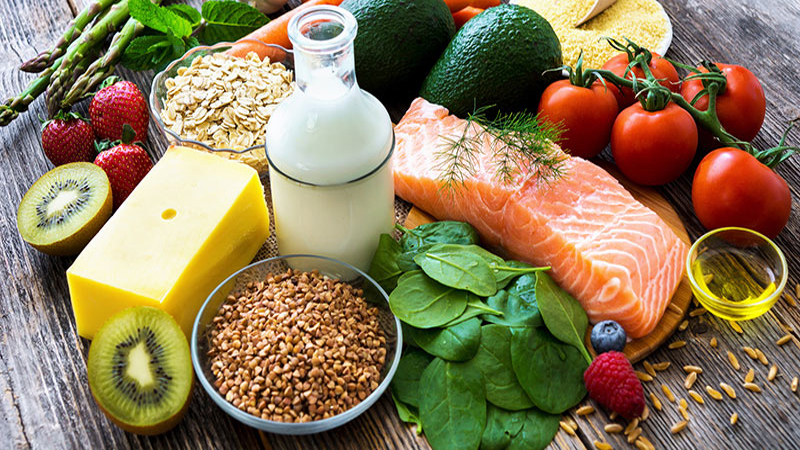
Suhoor
(Pre-dawn Meal)
What you put into your body during this meal is going to sustain your body for the next 12-20 hours…so you better choose wisely!
Here is a list of foods and drinks that are best to eat for Suhoor, as well as the ones you must avoid!
| Good to eat/drink | Don’t you dare |
|
Water, water, water, water, water… |
Salt, salt, salt, salt, salt, salt, salt… |
| Oats (porridge) | Did I mention salt? |
| Protein (eggs) | Fried/oily foods |
| Dates | White carbohydrates |
| Fruit | Sugary drinks (fizzy pop) |
| Brown rice/bread | Sugary foods |
|
And finally…yep you guessed it, water! |
Pasta (fastrelease energy, you need slowrelease) |
IFTAR
You are going to have to exercise self-control big time here, in particular dur- ing the first 10-15 minutes after opening your fast.
Here is a great ritual to follow: open your fast by following the Sunnah with 3 dates and a glass of water. Then, have a short break of 3-5 minutes (perfect for praying Maghrib salah).
After this short break you can then proceed to having your meal.
One important rule to follow for your meals: only use small plates. By using plates smaller than the circumference of your hand, you will find it much easier to eat less and not overeat!
Things you should be eating at Iftar;
| Good to eat/drink | Avoid |
| Water | Salt |
| Protein (meat, fish, lentils) | Fried food (sorry samosa lovers) |
| Vegetables | Sugary foods/desserts |
| Brown rice | Sugary drinks |
| Coconut water | High fat foods – cheese sauces |
| Dates | Low calorie/diet foods |
| Water…again | Over-eating!! |
Walking before Iftaar is highly recommended as it helps to burn fat whilst in a fasting state. In this state, your body will directly burn fat for energy as there is no food source in your body. So make a habit of getting all the food preps done half an hour before Iftaar and go for a walk!
This will also help keep your body nimble and will keep your joints well lubricated, so they don’t get stiff. This will be very beneficial for you when praying!
Walking before Iftaar will also help to build energy levels and increase your appetite.
That is everything you need to know about enjoying a safe, healthy and fit Ramadan.
should have everything you need to finish this Ramadan feeling
leaner, cleaner and ready to smash your fitness goals for the next 11 months!
Following Ramadan, take advantage of the fact that your body doesn’t need three large meals per day. Instead, try to eat smaller meals often and avoid eating fatty, salty or sugary foods as much as possible. This will ensure you’ll keep the fat off and keep you looking trim until next year’s Ramadan detox!
